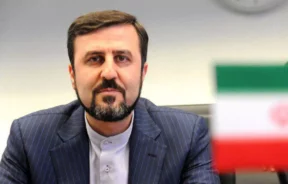Iran’s Show of Strength on the New Front of Global Power
WANA (Oct 25) – The first official BRICS summit following Iran’s and other new members’ joining marks the potential formation of a new front in international politics—a front with the economic and political capacity to challenge the dominance of the West over the world.
Starting Tuesday in Kazan, the capital of Russia’s Republic of Tatarstan, leaders and high-ranking officials from the 10 BRICS member countries and 28 interested nations engaged in heated and intense discussions about the most pressing global economic, political, and security issues.
This BRICS summit in Russia, held from October 22 to 24, was the first to include the alliance’s new members.
BRICS has now surpassed the G7, the economic and political backbone of the West alongside NATO, signaling the start of a new era where Western-dominated systems and frameworks in law, economics, trade, and finance will face significant challenges.
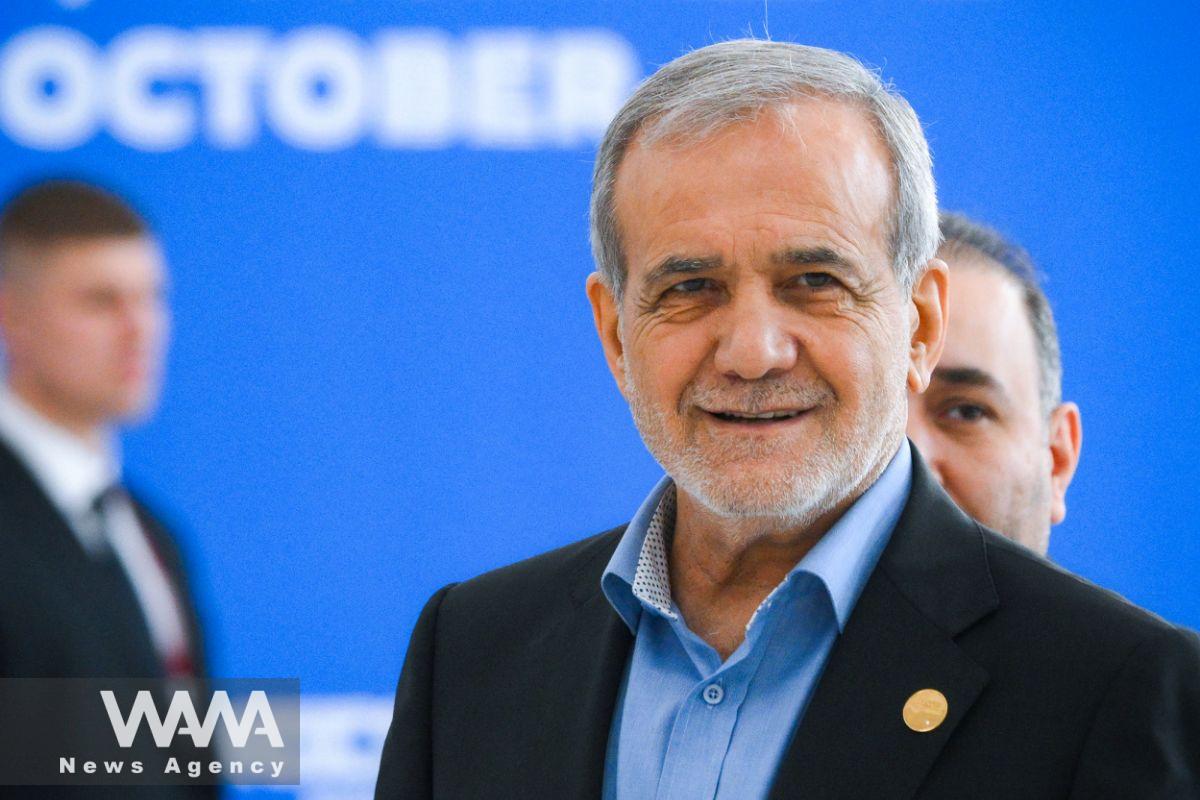
The sixteenth main summit of BRICS leaders was held in Kazan, the capital of Tatarstan, Russia, with the presence of Dr. Massoud Pezeshkian, President of the Islamic Republic of Iran, October 23, 2024. President.ir/ WANA News Agency
The presence of Iranian President Pezeshkian at BRICS, reflecting Iran’s commitment to non-Western opportunities, is particularly significant as the West Asian region reaches peak tension, offering a unique chance for global unity against Israeli crimes and Western support of them.
BRICS leaders, in their final summit statement on Wednesday, condemned the Israeli attack on Iran’s consulate in Syria and emphasized the need for an “immediate, comprehensive, and permanent ceasefire” in Gaza.
Expressing “grave concern about the deteriorating humanitarian crisis in the occupied Palestinian territories, especially the unprecedented violence in Gaza and the West Bank” due to Israeli atrocities, BRICS leaders called for “an immediate, comprehensive, and permanent ceasefire in Gaza and the unconditional release of all detainees from both sides.”
The BRICS countries further reiterated their “support for full UN membership for the State of Palestine as part of an unwavering commitment to a two-state solution in line with international law.”
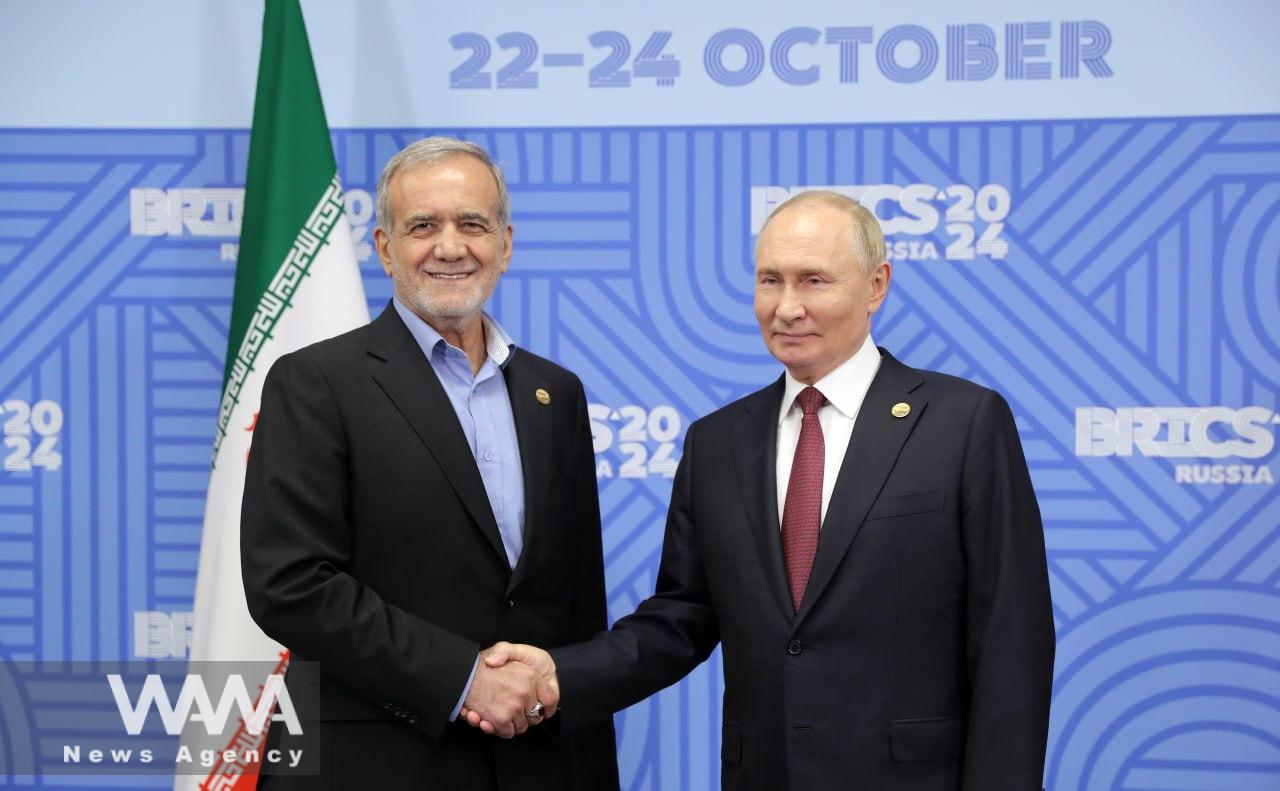
Masoud Pezeshkian, the President of Iran, in a bilateral meeting with Russian President Vladimir Putin on the sidelines of the BRICS Summit in Kazan. Social Media / WANA News Agency
In his first visit to Moscow as president, Pezeshkian met with presidents of Russia, China, South Africa, Egypt, Venezuela, Belarus, Bolivia, and prime ministers from India, Ethiopia, Armenia, and the UAE to discuss mutual interests.
The End of U.S. Hegemony?
These developments, alongside Iran’s recent diplomatic efforts, bring into focus why BRICS and similar alliances are critical. The United States has declined in most economic power indices compared to past decades, while other countries have experienced rapid economic growth.
China, the most notable, ranks as the world’s second-largest economy by nominal GDP and the largest by purchasing power parity (PPP). Nations like India, Indonesia, Brazil, and even Russia, after struggling in the 1990s, have rebuilt their economies in the early 21st century. The traditional influence of U.S.-led institutions such as the World Bank and the International Monetary Fund (IMF) has diminished.
For decades, the World Bank and IMF, under U.S. influence, promoted a specific economic model globally. However, as this model failed to deliver substantial development in many third-world countries, criticism grew, and these institutions recognized the need to consider broader development aspects.
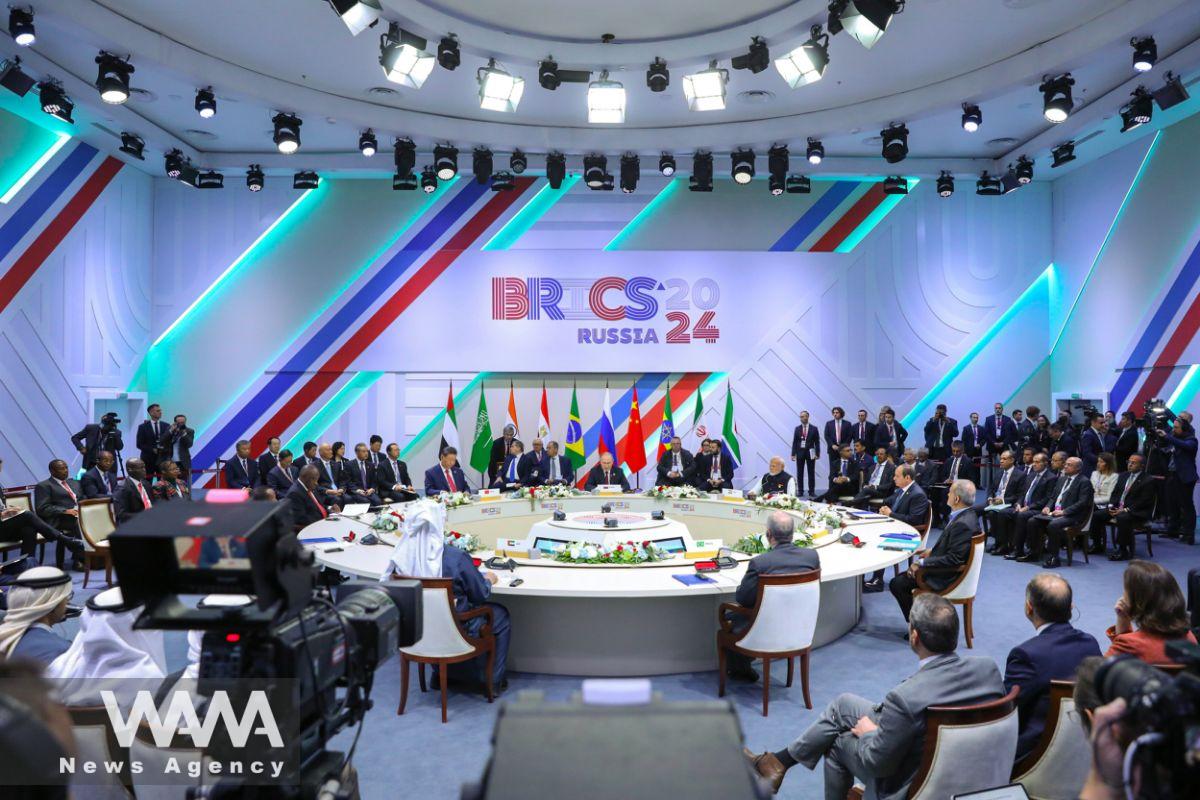
The sixteenth main summit of BRICS leaders was held in Kazan, the capital of Tatarstan, Russia, with the presence of Dr. Massoud Pezeshkian, President of the Islamic Republic of Iran, October 23, 2024. President.ir/ WANA News Agency
BRICS and Western Hegemony
The post-World War II global order was founded on the Euro-Atlantic nations (Western Europe and North America) and the Eastern bloc led by the Soviet Union. In this bipolar world, other nations were pressured to align with one of these power centers, and non-aligned movements were largely ineffective.
After the Soviet Union collapsed, the U.S.-led West positioned itself as the world’s sole superpower under a “New World Order” banner, cementing Western hegemony. In the initial post-Soviet decade, the U.S. and its Western allies wielded unmatched global power, engaging in numerous military conflicts to reinforce this order. Yet, by the early 2000s, the weaknesses in Western hegemony became evident, as emerging powers started to influence global politics and economics.
Emerging economies like China, Russia, Brazil, and India formed the BRICS bloc in 2009, with South Africa joining in 2010. Initially playing a minor role compared to Western alliances like the G7, BRICS has expanded its share of the global economy over the past 15 years. Now, with the addition of new members such as Iran, Egypt, Ethiopia, the UAE, and Saudi Arabia, BRICS accounts for 35.6% of the global GDP by PPP, surpassing the G7’s 30.3% share.
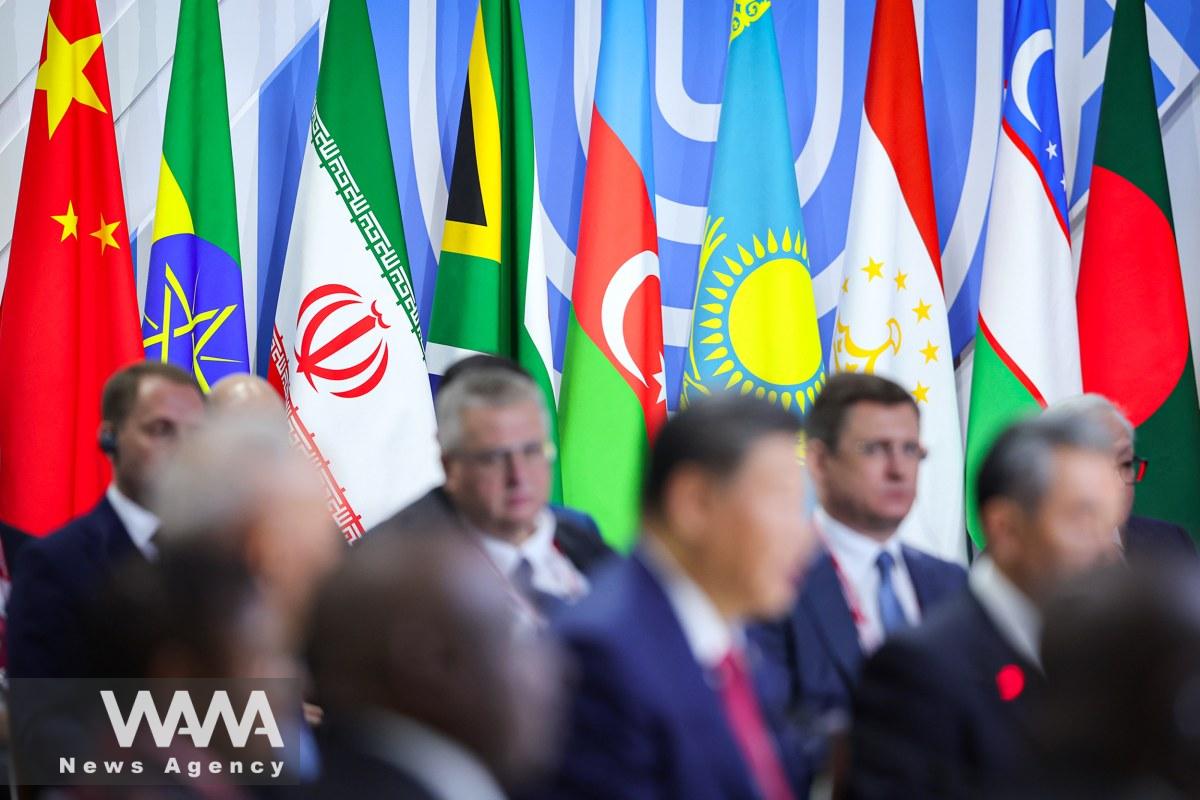
The sixteenth main summit of BRICS leaders was held in Kazan, the capital of Tatarstan, Russia, with the presence of Dr. Massoud Pezeshkian, President of the Islamic Republic of Iran, October 23, 2024. President.ir/ WANA News Agency
In over 30 years of Western-dominated governance, the global order has relied on two pillars: Western control over the global economy, particularly finance, and military dominance by the U.S. and NATO.
BRICS’ alignment against Western hegemony centers on the shared belief in the inefficacy of Western financial and economic mechanisms and a rejection of the West’s unilateral approach to global governance. This inefficacy has led to economic hardship for less developed countries, countless U.S.-led wars for energy resources and trade routes, and oppressive Western sanctions against countries like Iran and Russia.
With a greater share in the global economy than the G7, BRICS offers vast opportunities for intra-bloc cooperation and provides a path for countries aiming to disengage from the Western order, potentially leading to a more equitable global political and economic landscape.
BRICS does not seek the destruction of its rivals—a sharp contrast to the West’s approach during its “New World Order” phase following the Cold War.
Beyond economic ties, BRICS holds considerable potential for security cooperation and military partnerships, which could challenge Western military dominance and unilateralism, further weakening the ineffective Western order.
A new world with the alliance of emerging powers and increased regional influence will undoubtedly create a fairer global order.











